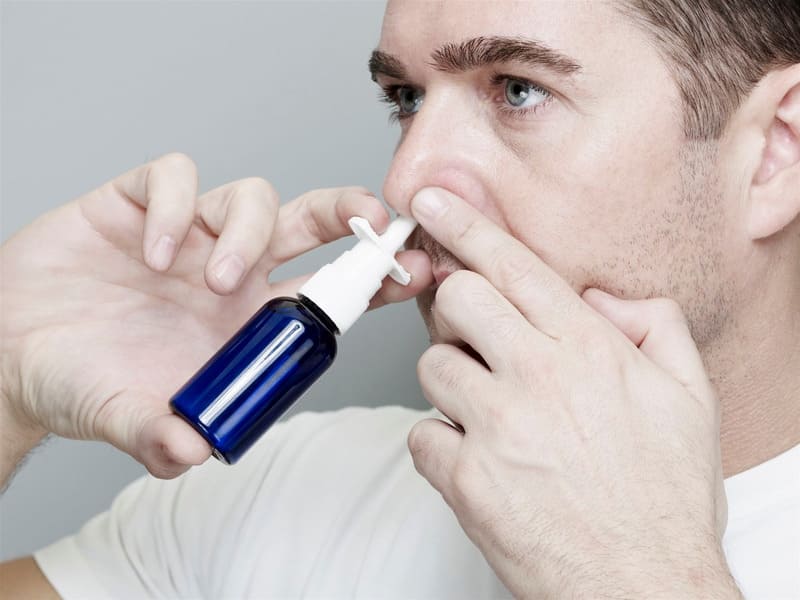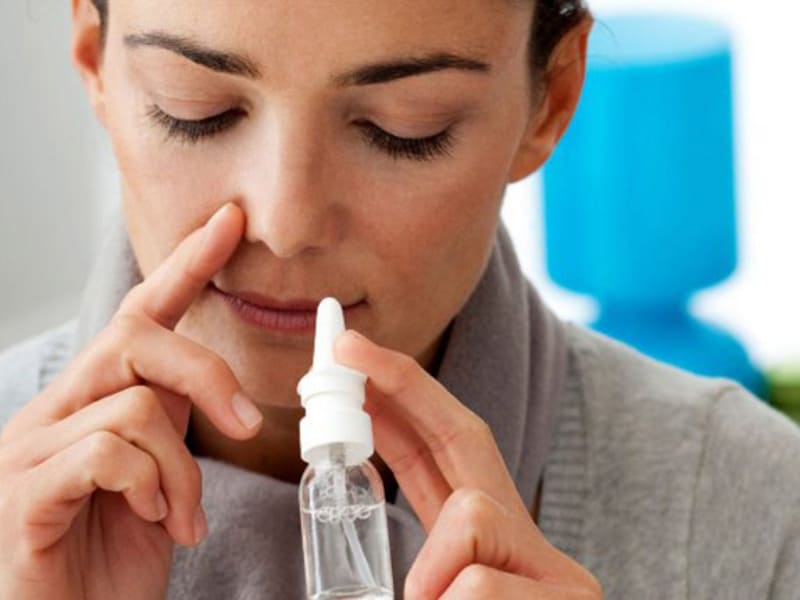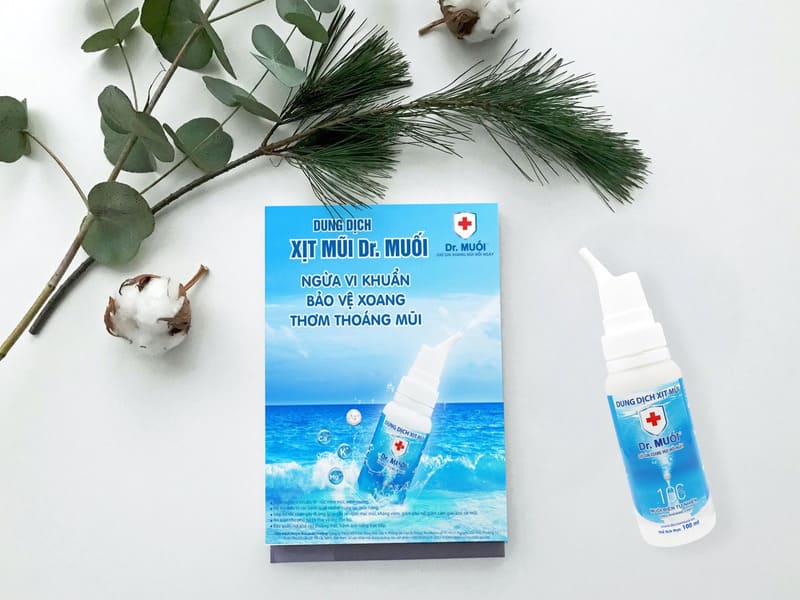Wash your nose with salt water properly to bring good effect
Rinsing the nose with physiological saline is a good habit for the health of the nasal cavity by cleaning bacteria, mucus and dirt in the nose. From there, it helps to reduce the common symptoms of runny nose, stuffy nose…. However, if you wash your nose in the wrong way, it can make the disease worse. So should you use physiological saline to wash your nose? Which product should I choose? The information in the following article will help you answer all questions.

1. Should I wash my nose with salt water?
Today, the habit of rinsing the nose with physiological saline is increasingly popular, applied by many people to clean the nasal cavity. This helps to remove mucus, phlegm, bacteria and dirt from the nose. From there, it helps to reduce the symptoms of common respiratory diseases such as allergic rhinitis, sinusitis, … At the same time, indirectly reduces the use of antibiotics.
 Physiological saline helps to clean the nose safely
Physiological saline helps to clean the nose safely
This has been able to answer the question of whether washing the nose with physiological saline is good for many people. Medical experts say that this is a good habit and causes few side effects for users.
However, you should note that you should not wash your nose with physiological saline too often because it will strip the natural mucus that forms in the nasal mucosa. This mucus layer is responsible for moistening, preventing dirt and bacteria from attacking the nasal cavity. Also remember that this method only really works when done correctly. Because if you do it wrong, symptoms such as stuffy nose, stuffy nose,… become more serious.
2. What kind of physiological saline should be used to wash the nose?
According to medical experts, you should choose 0.9% NaCl physiological saline solution. This is a saline nasal wash solution that has an effect equivalent to the concentration of body fluids. Using 0.9% NaCl physiological saline helps to avoid the feeling of pain and mucosal sting.
Note, with 0.9% NaCl physiological saline, you can use it to gargle, clean the nasopharynx and tonsils. Repeat 3-5 times for good results.
3. The correct method of rinsing the nose with salt water
Here is a guide to rinsing your nose with saline at home properly that you should do to ensure the best cleaning of the nasal cavity:
Step 1: You can wash your nose with homemade saline, or use a pre-mixed physiological saline bottle. Then, you stand in front of the sink and lean slightly forward, 45 degrees to the side
Step 2: Using a syringe or nasal irrigation bottle, forcefully inject saline into the upper nostril until the saline begins to drain from the lower nostril. Repeat the operation 3-5 times to clean the entire nasal cavity.
Step 3: Switch sides, wash the remaining nasal cavity in the same way
 You should wash your nose according to the instructions to not be counterproductive
You should wash your nose according to the instructions to not be counterproductive
Rinsing the nose with saline is a simple and effective home remedy for cleaning the nose. To get the most out of your nasal irrigation, you should follow the instructions above at a reasonable frequency.
In addition to the above method to clean the nasal cavity, you can refer to Dr.Mui’s nasal spray solution recommended by many experts.
 The product contains trace minerals that are good for the nasal cavity
The product contains trace minerals that are good for the nasal cavity
Dr.Muoi nasal spray solution is a product that contributes to the prevention of viruses, bacteria and unpleasant symptoms of rhinitis and sinusitis. The solution has ingredients from sea salt and many good trace minerals, which will help tighten the nasal mucosa, fight inflammation, reduce dryness and edema in the nose. Besides, it also supports the treatment of diseases of ear, nose and throat infections safely and effectively. This is also considered a good and safe nasal cleaning solution for both pregnant and lactating women.
You Can Refer To More Articles:
Should I wash my nose with physiological saline?
Instructions for Self-healing Sinusitis with Physiological Salt Water
Tips for Treating Allergic Rhinitis with Physiological Salt Water Simple and Effective
Instructions on how to hydrate with salt water to treat bad breath
